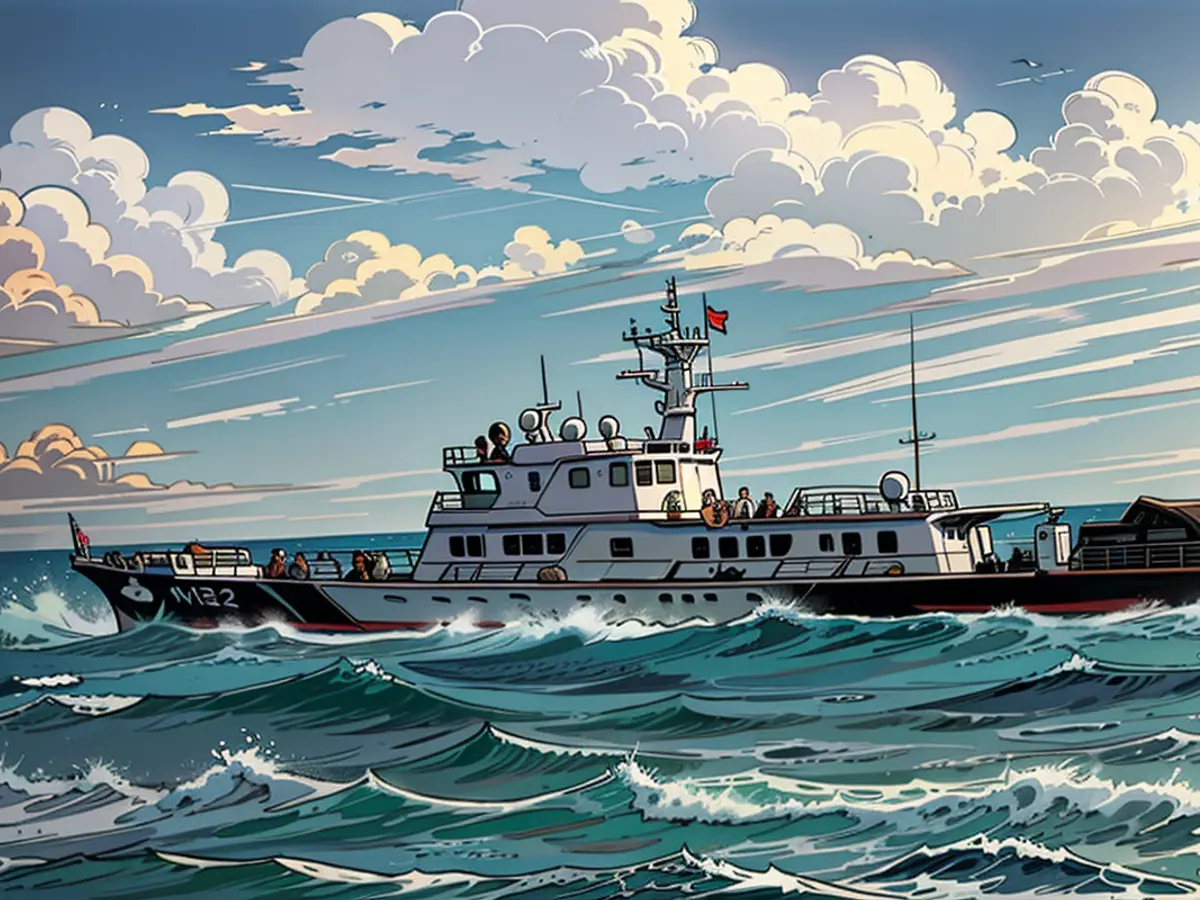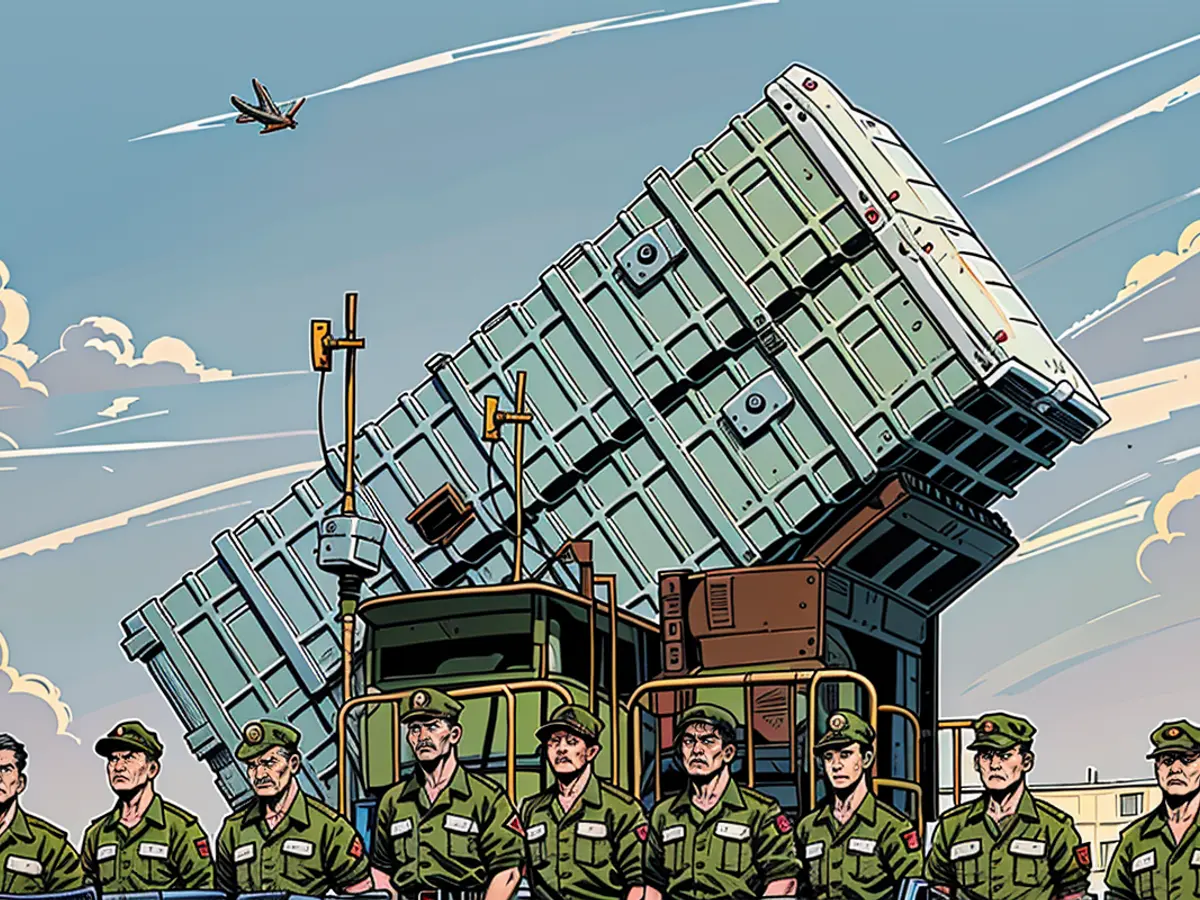Taiwan asserts that a Chinese blockade would constitute an act of war.
Over the past five years, China, claiming democratic Taiwan as its own territory, has consistently conducted almost daily military operations close to the island. These operations include simulated war games, practicing blockades and attacks on ports. Taiwan's government firmly rejects Beijing's sovereignty claims.
Recently, China's war games around the island included simulated blockades of key ports and areas, and assaults on maritime and ground targets, as stated by Beijing.
During a press conference at parliament, Koo noted that these "Joint Sword-2024B" exercises had outlined the exercise area, but there were no restricted zones for flights or navigation.
"If you truly wish to enforce a blockade, as per international law, it involves prohibiting all aircraft and ships from entering the area, which is considered a form of war," he said.
"I'd like to emphasize that drills and exercises are entirely different from a blockade, and the impact on the international community would also be different," Koo added.
Drawing attention to data showing that one-fifth of global freight passes through the Taiwan Strait, Koo noted that a blockade would have repercussions beyond Taiwan.
"The international community could not simply stand by and watch," Koo stated.
Although these war games last only a day, Chinese military activities continue. China has never renounced the use of force to annex Taiwan.
Carrier in the strait
Taiwan's defense ministry announced earlier on Wednesday that a Chinese aircraft carrier group had passed through the Taiwan Strait, heading north after crossing the Taiwan-controlled Pratas islands' waters.
The ministry reported the Chinese fleet, led by Liaoning, the oldest of China's three aircraft carriers, was spotted on Tuesday night. Taiwan's forces monitored the fleet. The Pratas are located at the northern end of the South China Sea.
Koo mentioned that the Liaoning was sailing towards the western side of the strait's median line, a boundary the Chinese do not recognize.
China's defense ministry did not respond to a request for comment.
The Liaoning was involved in the same Chinese war games near Taiwan last week.
At that time, Taiwan reported that the Liaoning had operated off the island's southeast coast during those drills, launching aircraft off its deck.
Japan reported last month that the same carrier had entered Japan's contiguous waters for the first time.
China has sailed its carriers through the strategic strait before, including in December, just before Taiwan held elections.
China asserts sole jurisdiction over the nearly 180 km (110 miles) wide waterway, which is a major international trade passageway. Taiwan and the United States challenge this claim, saying the Taiwan Strait is an international waterway.
The US Navy routinely sails through the strait to assert freedom of navigation rights. Other allied nations, like Canada, Germany, and Britain, have also conducted similar missions, causing Beijing's ire.
Taiwan has expressed concerns about China's use of its coast guard in recent war games, and is particularly worried about Taiwanese civilian ships being boarded and inspected as Beijing seeks to assert legal authority in the strait.
Taiwan's coast guard, in a report to parliament, stated that in such a situation, its ships would respond under the principle of "neither provoking nor backing down" and stop such acts "with all its strength."
The Liaoning, China's oldest aircraft carrier, recently passed through the Taiwan Strait, leading a carrier group, causing concern in Taiwan. This action further highlights the ongoing tensions between China and Taiwan in the region, particularly over China's claims to sovereignty in the disputed waters.
Moving forward in this context, it's worth noting that approximately one-fifth of global freight passes through the Taiwan Strait. Any potential blockade or disruption in this area could have significant repercussions across Asia and the world.








